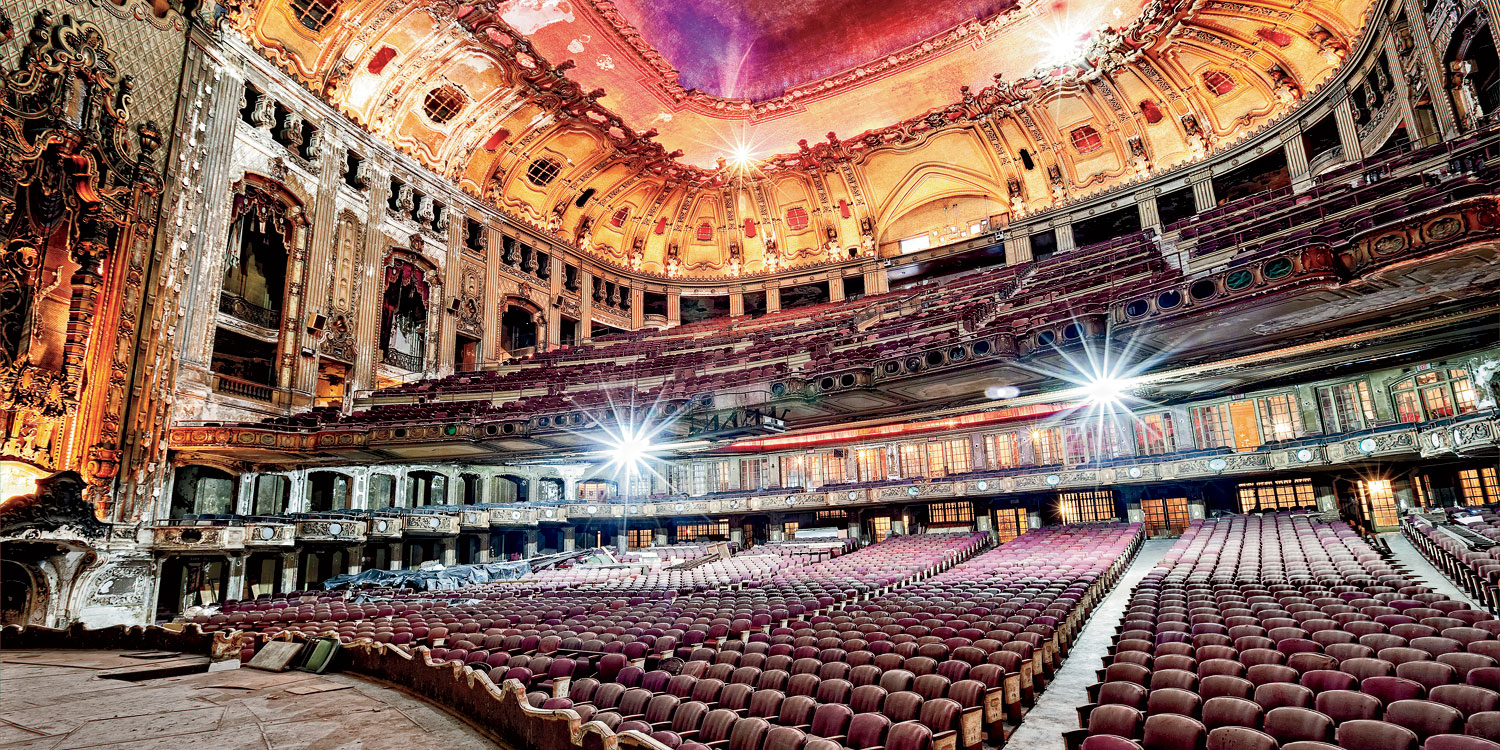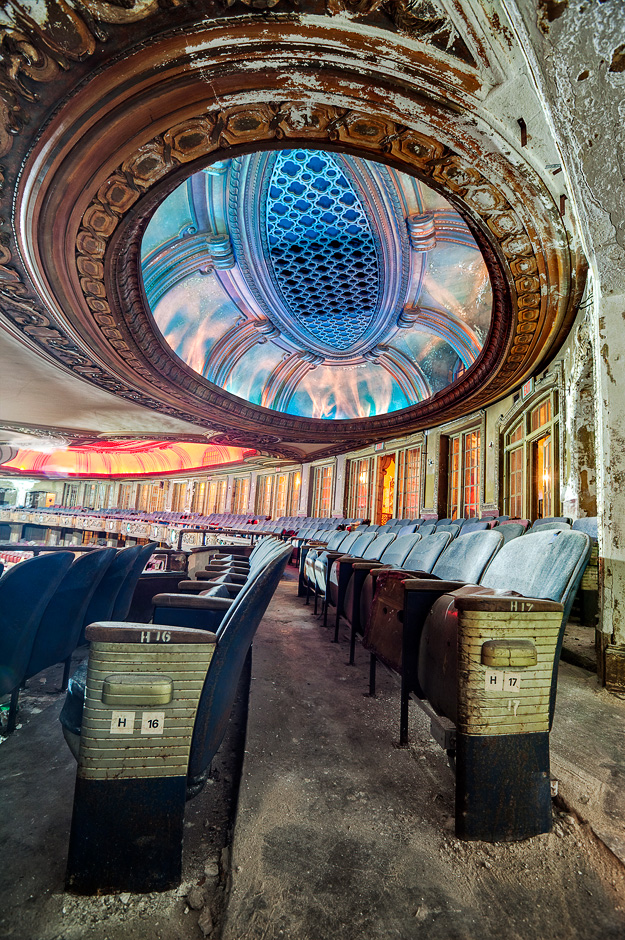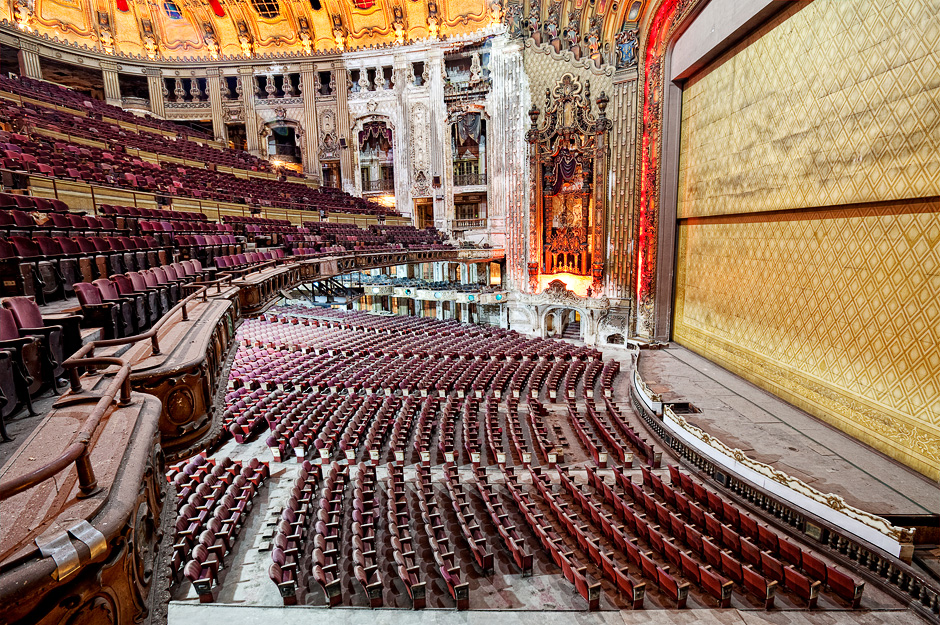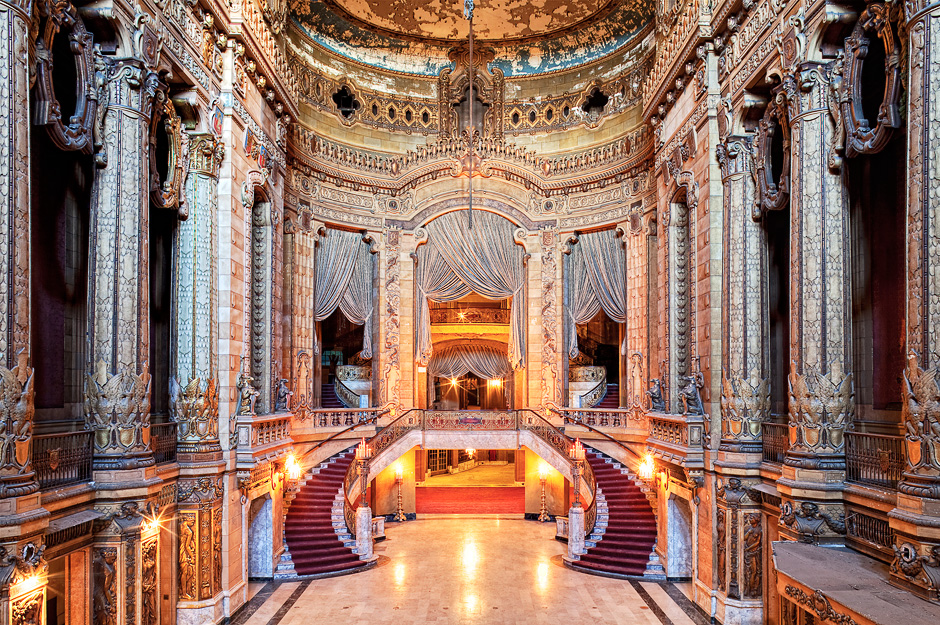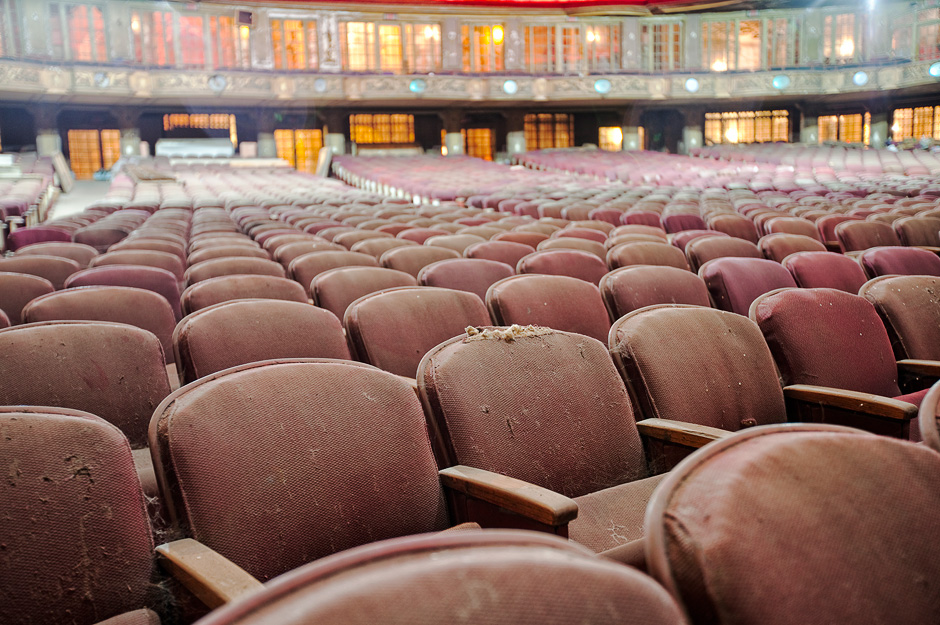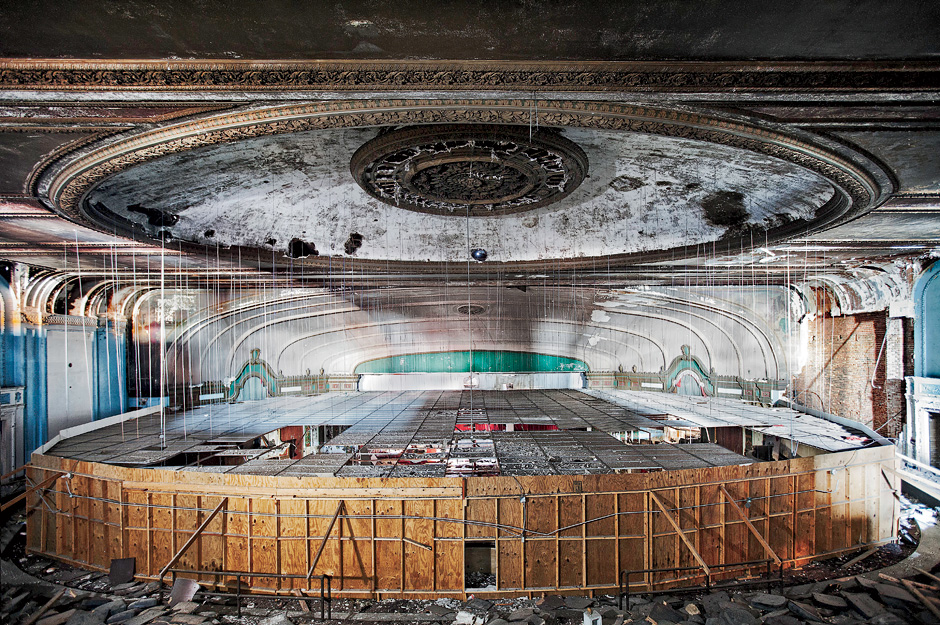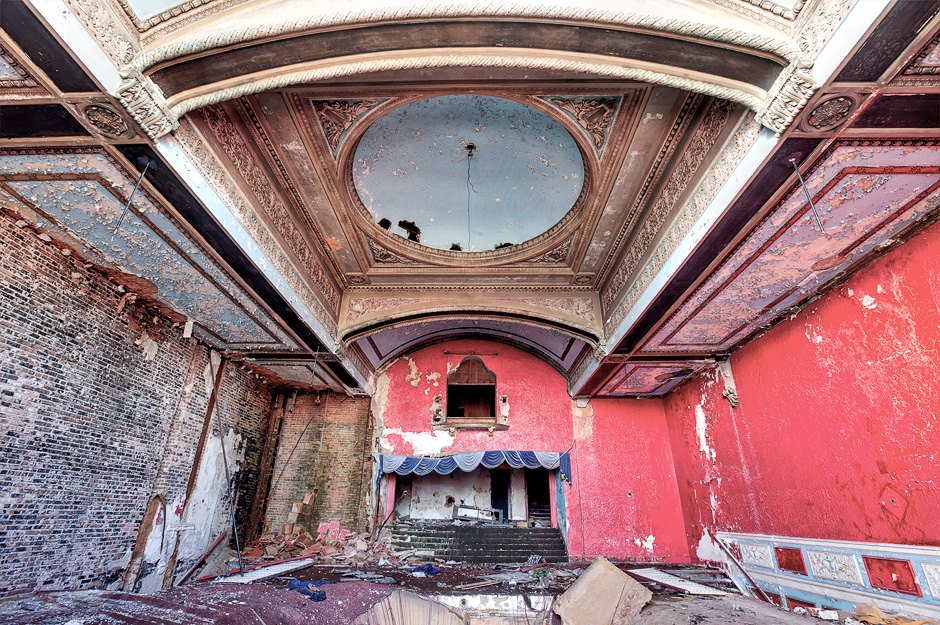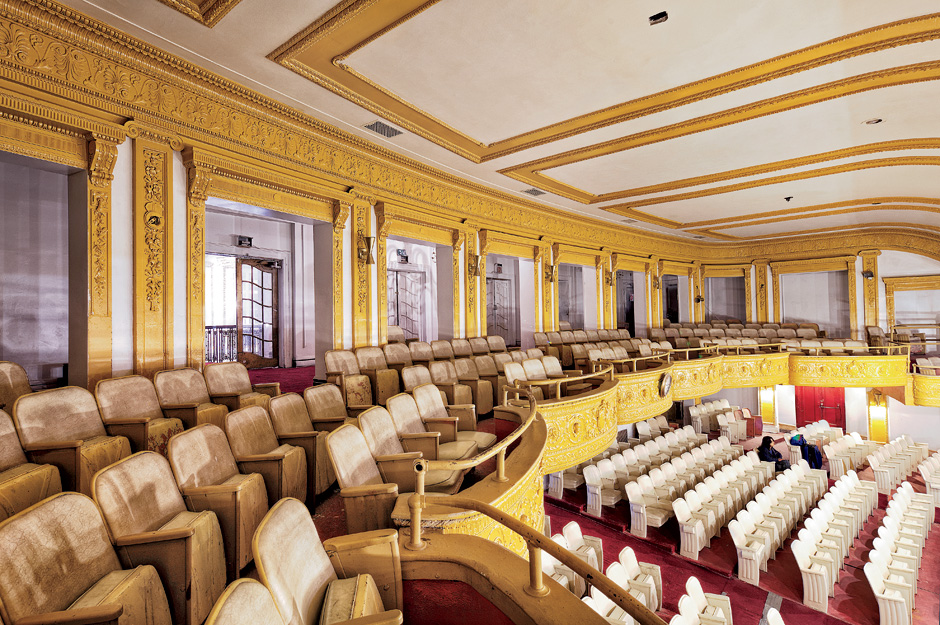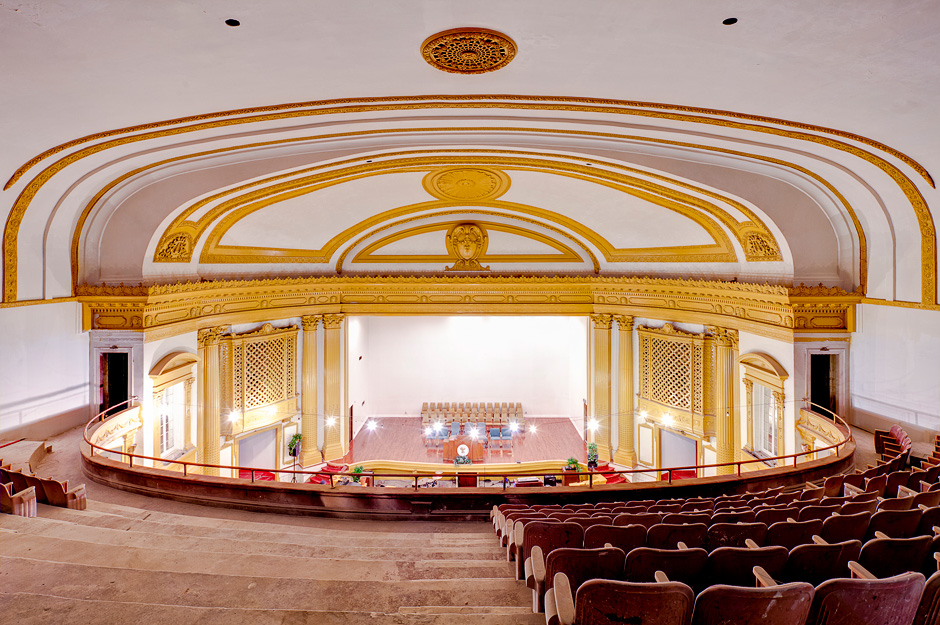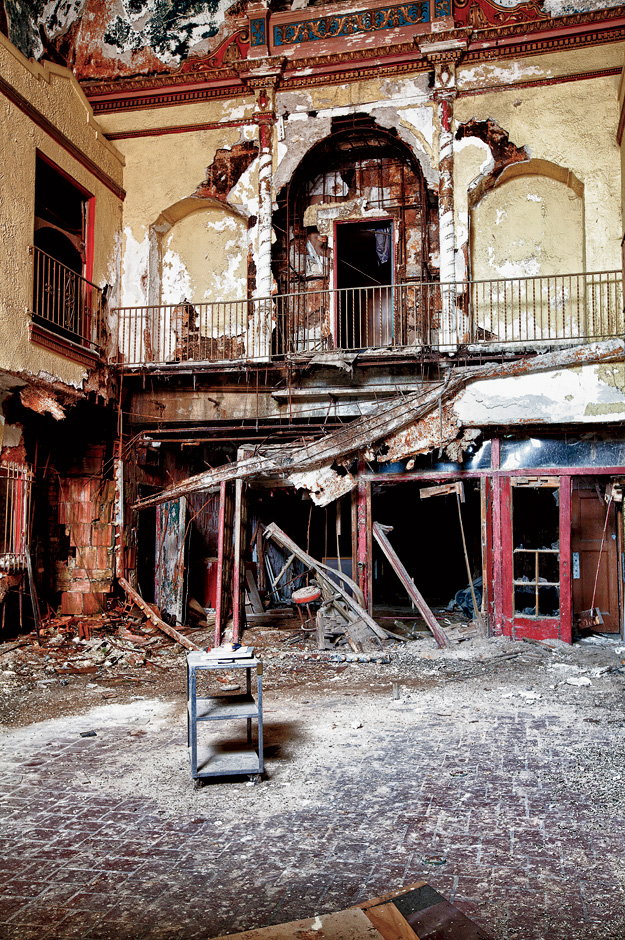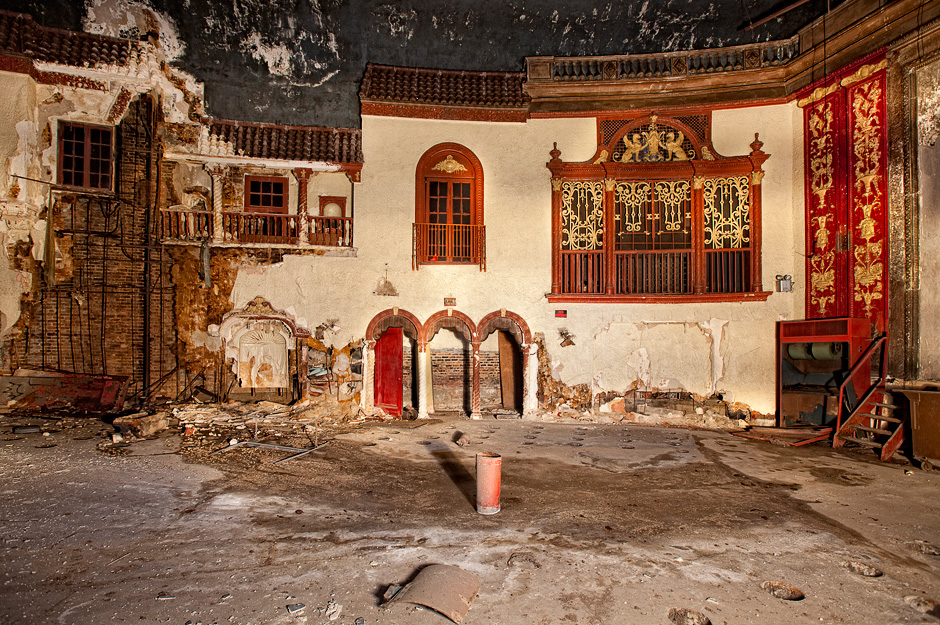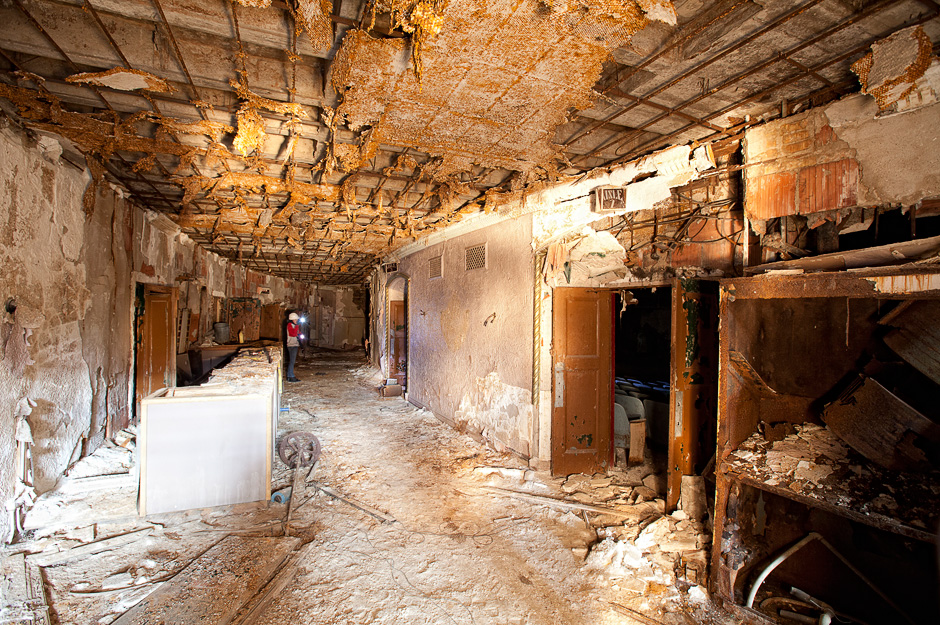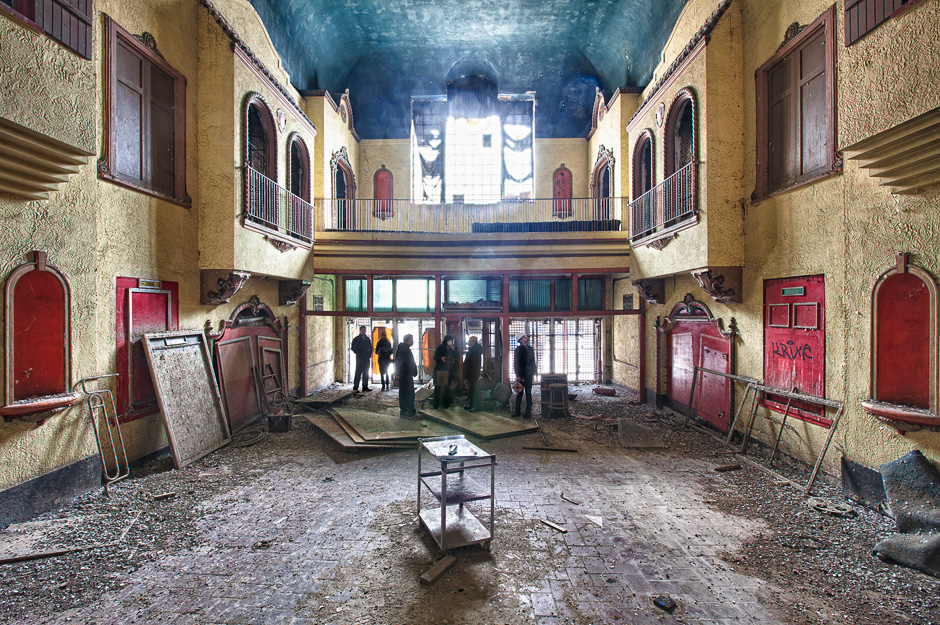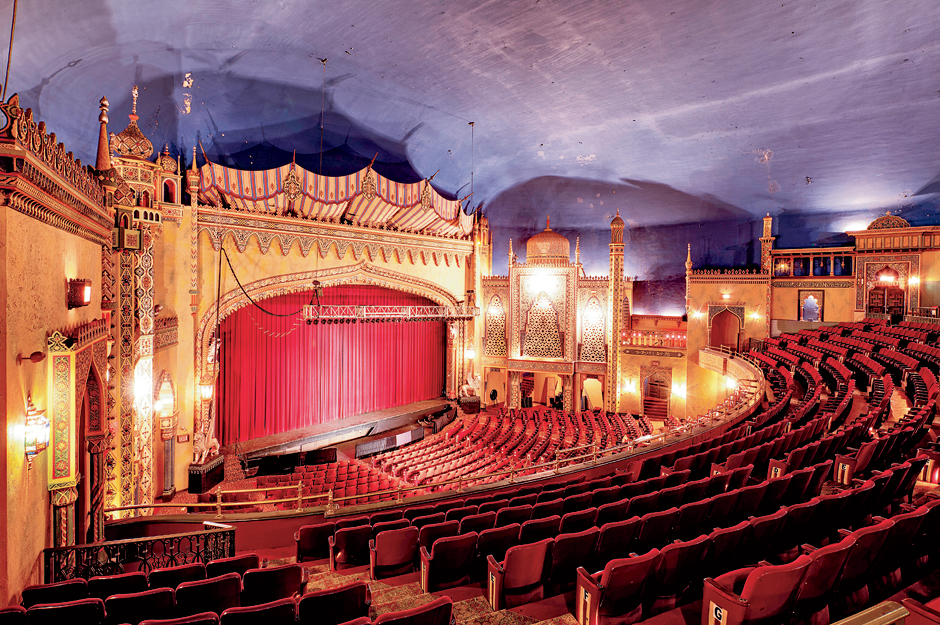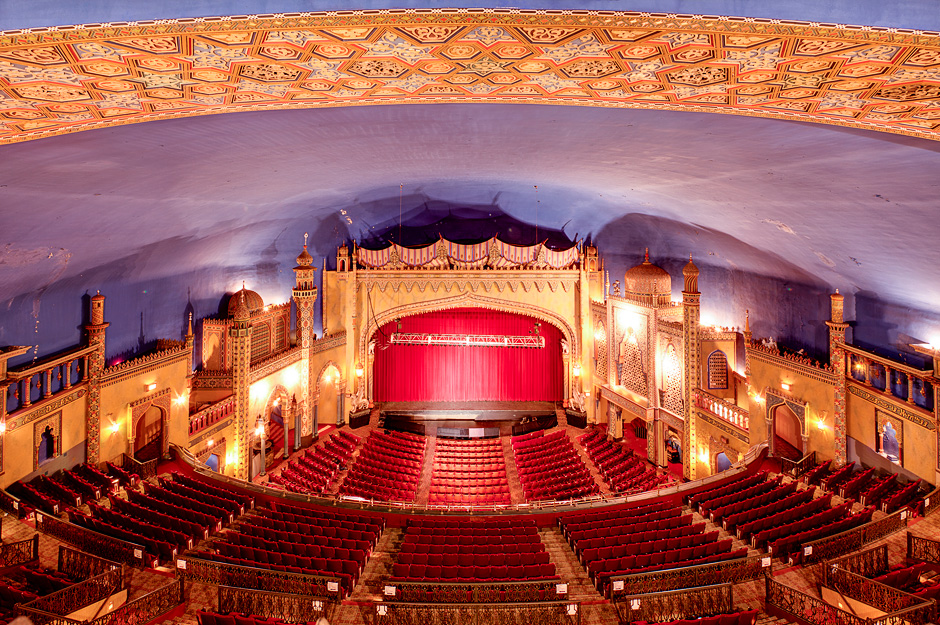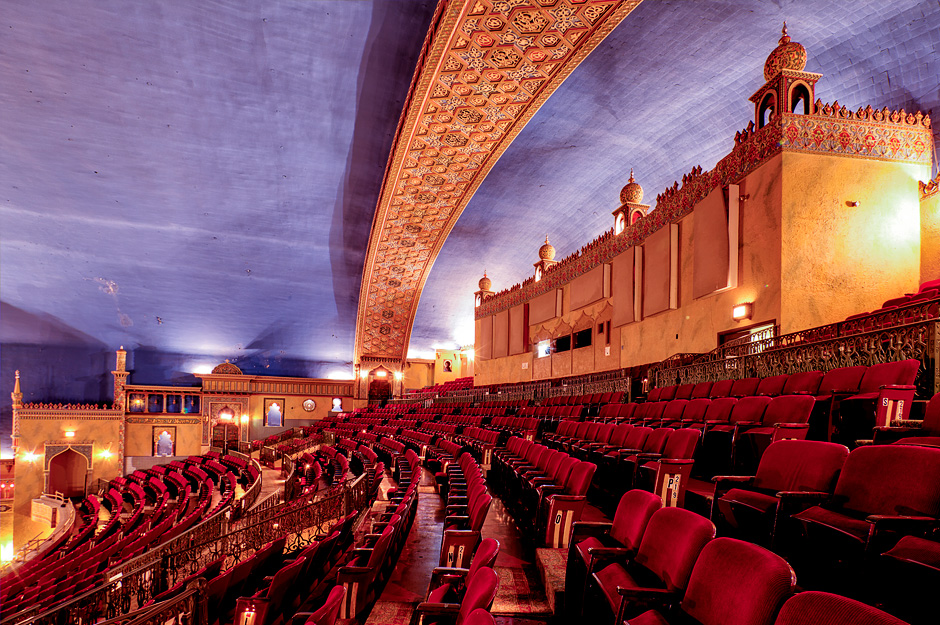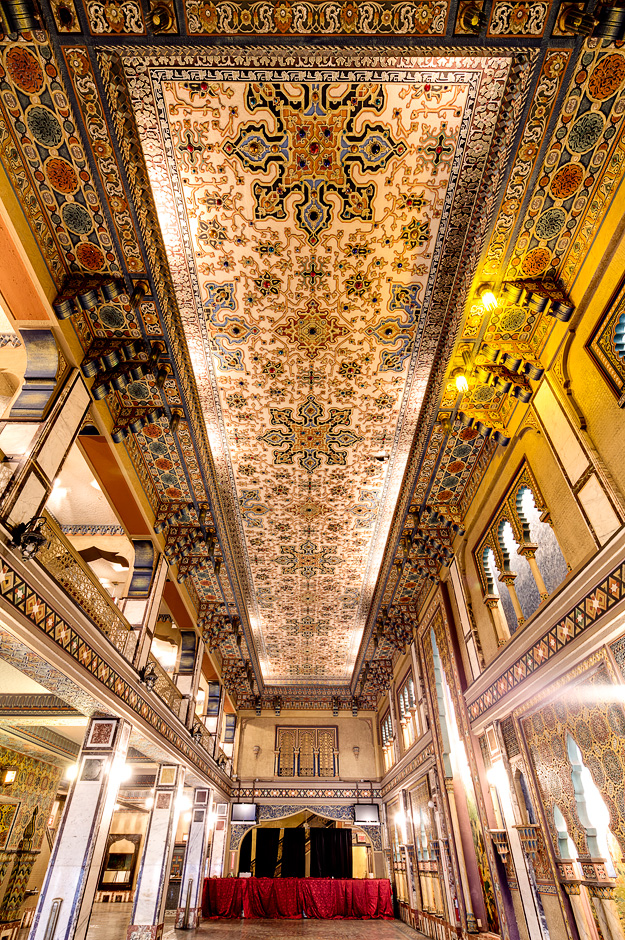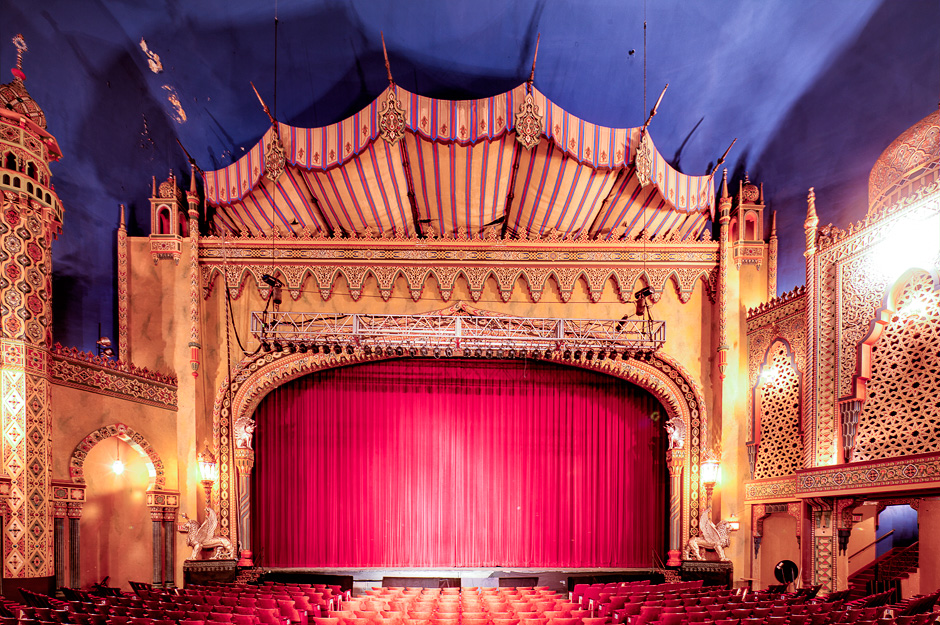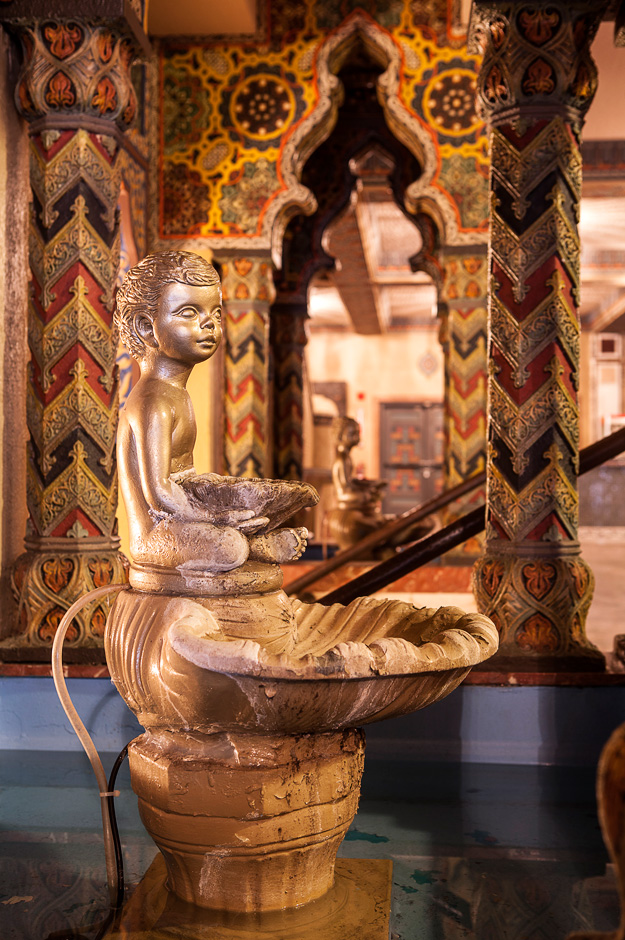Most of the theatres in this photo essay were still in business when I started reviewing movies for the Sun-Times. In those days a lot of movies still opened in “the nabes,” of ten as double features, and as a newcomer to town, I found going to view them was a way of exploring the city. These majestic palaces would cost unimaginable amounts today, but those still standing are, as you can see, falling into ruin.
Whenever I hear the names of these wonderful places, I remember one of the most unforgettable moviegoing experiences I’ve ever had. Michael Kutza opened his 1975 Chicago International Film Festival at the Uptown, at Broadway and Lawrence, by showing One Flew Over the Cuckoo’s Nest, with Jack Nicholson, who was at the height of his fame. The Ken Kesey novel was a cult favorite, but no one in the audience had any idea what to expect, and only the cineastes would then have known the name of its Czech director, Milos Forman.
The theatre was one of the largest in America. Every seat was sold. The lobby before the show was vibrating with excitement. To call that screening a success would be a cruel understatement. I’ve never been part of a more excited movie audience. They laughed, they cheered, they applauded individual lines, and Nicholson did what Hitchcock said a movie was supposed to do—he played the audience like a piano.
It was a great movie, yes. Was it as great as it seemed that night? The waves of human energy from the audience bounced off the screen and reinforced themselves. It was Michael Douglas’s debut as a producer. His father, Kirk, had optioned the rights to the novel and perhaps envisioned himself as R. P. McMurphy. But Hollywood was in the throes of takeover by a new generation. A foreign director was brought in. Stars were born. It was nominated for nine Oscars and was the first film in 41 years to sweep the categories of best picture, director, actor, actress, and screenplay.
I ran into Michael Douglas afterward, surrounded by admirers in the lobby. “No matter how long I’m in the business and no matter how many pictures I produce,” he told me, “I know I’ll never experience another night like this one.” It was what every filmmaker dreams of: a big picture on a big screen with a big audience in a big theatre. Words like “boffo” still meant something.
The Uptown still stands at Broadway and Lawrence, its decaying interior like a mausoleum. The laughter has faded. The smell of popcorn no longer drifts in from the lobby. Some landmarks have been restored: the Chicago, the Oriental, the Bismarck (now the Cadillac Palace). All over Chicago, the bones and the memories of our other movie palaces linger. For them, the last picture show has closed.



